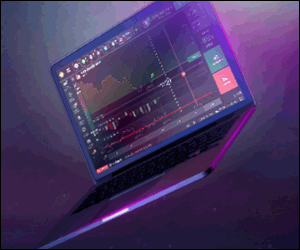 Qatar is one of the tiniest countries in the Arabian peninsula. The population totals around 3 million with the land area of 11,800 square kilometers, however, it is still considered as one of the reachest countries not only in the region but in the world. This is due to the fact that the country is sitting on top of the world’s biggest resource of natural gas and crude oil. Its economy is fueled by the extraction and export of the aforementioned duo. A lot of countries share a huge interest in Qatar due to this fact alone. Some of the biggest partners are India, Japan, and South Korea. However, the government of Qatar has been actively trying to diversify the economy by funneling money into its industrial segment. This has been more or less successful, however, it is still hard to find enough manpower inside of the country. Due to this, Qatar is heavily dependant on its neighbors for providing human resources and labor workers. This also extends on the services of foreign regulatory bodies to foolproof forex brokers in Qatar.
Qatar is one of the tiniest countries in the Arabian peninsula. The population totals around 3 million with the land area of 11,800 square kilometers, however, it is still considered as one of the reachest countries not only in the region but in the world. This is due to the fact that the country is sitting on top of the world’s biggest resource of natural gas and crude oil. Its economy is fueled by the extraction and export of the aforementioned duo. A lot of countries share a huge interest in Qatar due to this fact alone. Some of the biggest partners are India, Japan, and South Korea. However, the government of Qatar has been actively trying to diversify the economy by funneling money into its industrial segment. This has been more or less successful, however, it is still hard to find enough manpower inside of the country. Due to this, Qatar is heavily dependant on its neighbors for providing human resources and labor workers. This also extends on the services of foreign regulatory bodies to foolproof forex brokers in Qatar.
Forex trading is legal in Qatar. This causes a lot of fraudulent companies to target Qatar citizens to try and extract as much money out of them as possible. To counter malicious companies and scammers preying on people, the Qatar government introduced the Qatar Financial Center (QFC) in 2005. This regulator regulates the financial and business affairs like banking, asset management, and insurance business. QFC is known to meet international practices at a very high level. Qatar Financial Center Regulatory Authority (QFCRA) is a specific department of QFC, which works on regulating the market and makes sure that everyone under its jurisdiction gets the same fair treatment from the brokers and other financial companies. QFCRA regulates firms and individuals conducting financial affairs in Qatar.
In December 2012, the new Law of the Qatar Central Bank and the Regulation of Financial Institutions has been established. New QCB Law took important steps towards financial stability via formalizing the cooperation between Qatar Central Bank (QCB), Regulatory Authority, and the Qatar Financial Markets Regulatory Authority via the establishment of the Financial Stability and Risk Control Committee, which ensure that they only allow legit forex brokers in Qatar.
Top Qatar Forex Brokers and Reviews
As small as Qatar is, it still is represented as one of the major players in the Forex industry. This is due to the fact that poverty is low in the country and thus the population has a keen interest in developing their skills to create additional income using the foreign exchange market as a medium. An estimated amount of 300,000 locals trade on Forex, cryptocurrencies, bonds, and stocks using the internet. The main currency in the country is Qatar Riyal (QAR). It is issued by the Qatar Central Bank and has a fixed rate of 3.64 QAR for 1 United States Dollar (USD). The peg was officially introduced in July 2001 and has even been written into the law by Hamad bin Khalifa Al Thank, the Head of State at that time.
This is a winning condition for a lot of Qataris and represents a huge draw for forex brokers in Qatar interested in dealing with Qatari citizens. However, a lot of fraudulent companies are attempting to try and scam the Qataris out of their money. This is due to the fact that unless the brokerage falls under the jurisdiction of QFCRA there’s basically nothing a user can do to retrieve their money. This is why it is extremely important to pay attention to all of the details about the broker one is trying to make friends with.
To view more information about the broker one can simply click a button to be transferred to their website and see their services. As a rule of thumb, make sure to read all of the reviews and understand exactly who you are dealing with. This can be done without leaving our website. Unfortunately, there is no easy way to determine if the company is scamming its users or not unless one does an in-detail overview of everything present on the website of the firm before they start trading with Qatari forex brokers. This can be done by viewing and crosschecking the license on their website as well as the place of origin. Sometimes, scamming companies just select a random spot from the region and write the address, however, sometimes these spots are so random that one can use Google maps feature to see the street itself and easily notice that there are no offices at all.
AvaTrade


Minimum deposit
100 USD

Licences
ASIC , FSC, FSCA, FSA, FFAJ, FSRA

Maximum leverage
400:1

Platforms
MT4, MT5
HotForex


Minimum deposit
5 USD

Licences
FCA, FSA, DFSA, FSCA

Maximum leverage
1:1000

Platforms
MT5, MT4, WebTrader
Plus500


Minimum deposit
$100

Licences
FCA, ASIC, CySEC, FSCA, FMA, MAS

Maximum leverage
1:30

Platforms
WebTrader
IQ Option


Minimum deposit
$10

Licences
CySEC, FSA

Maximum leverage
1:30

Platforms
Web
Qatar Forex Laws
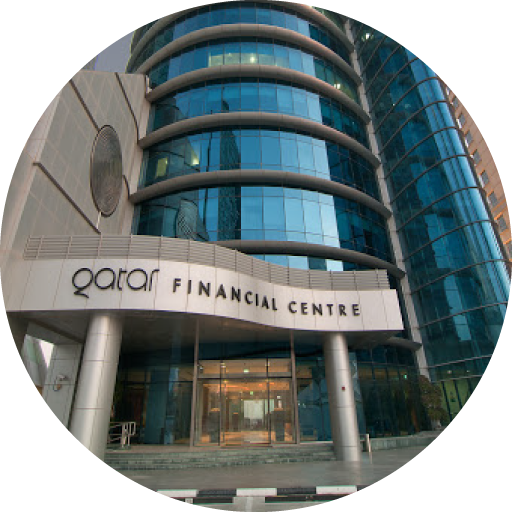 Qatar Financial Center has issued a number of strategic plans for the Financial Sector Regulation. There are five strategic goals they would like to achieve. As of now, Qatar is still in the process of the second goal. The first one was introduced in 2013 and lasted until 2016. It was met with a huge success and thus the overall strategy continues.
Qatar Financial Center has issued a number of strategic plans for the Financial Sector Regulation. There are five strategic goals they would like to achieve. As of now, Qatar is still in the process of the second goal. The first one was introduced in 2013 and lasted until 2016. It was met with a huge success and thus the overall strategy continues.
The aim of Qatar National vision 2030 (QNV 2030) is to transform the state of Qatar into a nation of the future and introduce Qatari regulated forex brokers. This involves slowly getting rid of old and redundant economic strategies and start working on betterment of the future goals. This is to ensure that the country is less dependent on oil and natural gas as the resource is finite and the rich and good nature of the country will not last in a long term perspective. QNV 2030 rests on four different pillars: human, social, economic, and environmental development. The financial sector is one of the most important players out of the four as a lot of things are directly dependant on the financial capabilities of the country. The development process is lead by all three regulatory bodies: The Qatar Central Bank (QCB), Qatar Financial Centre Regulatory Authority (QFCRA), and the Qatar Financial Markets Authority (QFMA).
The financial plan has made significant achievements in the development of the infrastructure in the areas of governance, payment, and settlement systems. These fields include brokerage firms as at this moment there are no QFCRA regulated brokers present and the Qatari government only allows off-shore companies that are licensed by the trusted regulatory bodies. Due to continuous efforts, the financial market has also become much more profound and stable. Advancements have also been made for the credit information systems have also been strengthened and secured. This is in direct correlation with the protection of the forex traders due to the fact that the regulations also apply to the brokers servicing Qatari citizens.
Although the cryptocurrency trading has been outlawed in January 2020 in Qatar, trading in forex is still very much legal. Even more, the country has adopted very relaxed laws concerning the offshore brokers operating on the Qatari soil without local authorization. This is a major concern for a lot of traders as it puts them susceptible to all of the different scams and fraudulent activities none of the legit forex companies in Qatar would involve themselves in.
In 2017, Qatar experienced a huge diplomatic crisis leading to a lot of economic sanctions from its neighbors with Saudi Arabia being a major player in this game of politics. This has caused major issues for the traders as trading with foreign brokers is the only easy way to deal with foreign currencies. The local brokers only deal in the Qatari currency of QAR. This means that a lot of traders have to funnel QAR into local broker accounts and then transfer them to the foreign currency with unfavorable exchange rates. This can be done via the so-called “introducing brokers,” who are basically representatives of foreign firms in Qatar. An alternate way is to trade with one of the locally designated exchange banks. Even in the face of problematic times lots of brokers still manage to overcome these issues and continue working with the help of local agents, thus making it into the list of top Qatari forex trading brokers.
It is also worth noting that Qatar is a conservative country. This means that a lot of people are aware of the social, religious, and political laws. Mainly due to this some of the locals prefer to trade on the stock market as they are unsure about conforms with the Shariah principles of investment about currency trading. They have fears that this is haram, or forbidden, under Islamic law. Even in spite of this a lot of people still opt in to trade with the offshore brokers using the currency pairs.
One of the most forex brokers are usually the ones based and regulated in the UK, Australia, and Cyprus. This is due to the simple fact that a lot of these brokers offer native Arabic language support and are well regulated by most trusted institutions in the world. This means that they accommodate Qatari traders with the accounts that are in full compliance with the principles of Islamic finance. As local regulatory bodies do not regulate or even allow traders they rely on foreign trusted regulatory institutions to approve non-QFCRA approved forex brokers to make sure that all of the financial operations in Qatar are in accordance with Shariah law as it is the foundation of Islamic economics. This means that the transparency and ethics are of the highest value and thus have to be respected. Due to this, collecting and paying interest, known as riba in Arabic, is strictly forbidden.
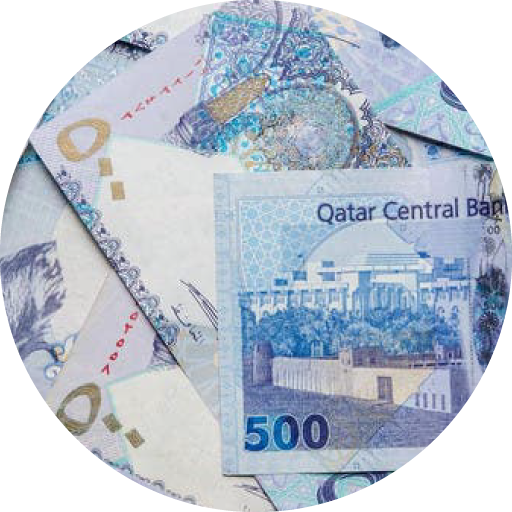 Charging riba in general is considered unethical. The Holy Qu’ran is very clear on this point as it is unfair to the one who pays riba in the first place. Those who follow Islam believe that riba is the means of exploitation of the poor. It only serves to make the rich richer and poor poorer, hence, money does not hold any intrinsic value and is only considered to be a means of exchange and nothing else. Therefore, it is illegal to earn more gains by trading money alone without offering something in return. Due to this, a lot of legit forex companies in Qatar provide Arabic users swap-free (riba-free) accounts. This means that the traders are not charged or paid interest on their overnight positions. Shariah-compliant brokerages are also compelled to carry out all of the monetary transactions into the Muslim customer accounts without any delays. This also applies with any other transaction like costs associated with the transactions.
Charging riba in general is considered unethical. The Holy Qu’ran is very clear on this point as it is unfair to the one who pays riba in the first place. Those who follow Islam believe that riba is the means of exploitation of the poor. It only serves to make the rich richer and poor poorer, hence, money does not hold any intrinsic value and is only considered to be a means of exchange and nothing else. Therefore, it is illegal to earn more gains by trading money alone without offering something in return. Due to this, a lot of legit forex companies in Qatar provide Arabic users swap-free (riba-free) accounts. This means that the traders are not charged or paid interest on their overnight positions. Shariah-compliant brokerages are also compelled to carry out all of the monetary transactions into the Muslim customer accounts without any delays. This also applies with any other transaction like costs associated with the transactions.
The security and fairness is also a huge part of this affair. All brokerages operating in Qatar (“Qatar-friendly brokers”) licensed with one of the other reputable regulators have to comply with very strict standards of security. This means that the money from Qatari customers needs to be 100% safe and protected. The regulation expects the money from Qatari users to be stored in a separate account from their operational capital. This means that everyone can get their money back in case of some kind of a security breach of the broker company itself. A lot of top Qatari forex trading brokers are also capping the maximum leverage for the customers. This means that the user is basically protected from losing too much money at the same time. This is done to ensure that the trader does not lose more money than they have initially deposited into their accounts.
Qatar Financial Center and Regulations
As we have already mentioned in the introduction, the financial sector of Qatar falls under the jurisdiction of three different bodies. These are the Central Bank of Qatar (CQB), the Qatar Financial Markets Authority (QFMA), and the Qatar Financial Center Regulatory Authority (QFCRA). With the cases of money laundering going on, at the start of 2020, the QFCRA has announced the absolute prohibition of trading with cryptocurrencies for the companies operating on Qatari soil. All three of these regulatory bodies are stationed in the capital of Qatar, Doha. These three are responsible for the regulations of banking institutions, insurance, stock market companies, and legit forex companies in Qatar. In addition, they also oversee the hedge funds, investment companies, and every other financial service provider that operates on the Qatari grounds.
When it comes to foreign off-shore brokers they have to be regulated by one of the most reputable regulatory bodies in the world. For example, the ones working from the UK need to have the authorization of the United Kingdom Financial Conduct Authority (UK FCA). Ones working from Cyprus have to be regulated by the Cyprus Securities and Exchange Commission (CySEK). Australian companies have to be regulated by the Australian Securities and Investment Commission (ASIC) as well as the Cayman Islands Monetary Authority (CIMA).
Why These Regulators?
UK FCA, CySEK, ASIC, and CIMA are one of the most reputable regulatory bodies in the world. Brokerages that are licensed in these jurisdictions offer quote favorable terms to their Qatari traders. This means that all of the necessary precautions are taken, the forex brokers in Qatar offer the platform is in the native Arabic language, there are no swaps, the transactions are all done instantly, balance is protected, funds are segregated, and leverages capped. Unfortunately, due to the regulations, there are no locally based brokers that trade in foreign exchanges. Locals are allowed to trade with off-shore brokers without any hindering from the lawmakers and law enforcement agencies.
Qatar’s Unique Demands for Payment Methods
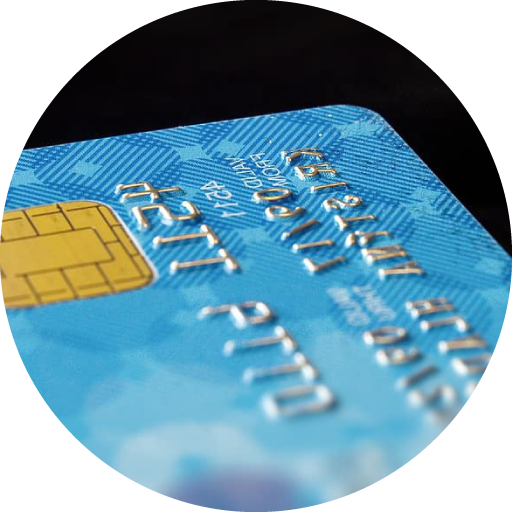 Due to Islamic economics, the Shariah Law demands seamless and instantaneous transactions. This means that the Qatari Forex traders seek to work with brokers who offer quick and hassle-free deposits and withdrawals. This means that the brokers have to support a wide variety of payment methods including bank wire transfer. In general, this is considered a universal solution as most of the platforms accept international bank transfers. However, this means that the seamlessness has to be pushed back a little as international bank transfers may take up to several business days for the money to appear on their balance, which goes against several “quality of life” improvements that are set forth for QFCRA approved forex brokers. Although, it is often overlooked as it is very much accepted as a fact by the Qatari authorities as well.
Due to Islamic economics, the Shariah Law demands seamless and instantaneous transactions. This means that the Qatari Forex traders seek to work with brokers who offer quick and hassle-free deposits and withdrawals. This means that the brokers have to support a wide variety of payment methods including bank wire transfer. In general, this is considered a universal solution as most of the platforms accept international bank transfers. However, this means that the seamlessness has to be pushed back a little as international bank transfers may take up to several business days for the money to appear on their balance, which goes against several “quality of life” improvements that are set forth for QFCRA approved forex brokers. Although, it is often overlooked as it is very much accepted as a fact by the Qatari authorities as well.
Qatar traders usually use card payments. This means that all of the brokers do allow for payments conducted with credit cards or debit cards. This includes brands like Visa, Mastercard, Discover, American Express, Maestro, and etc. All of these are available for Qatari traders from their respective Qatari-friendly brokers. Alternatively, there are e-wallet payment options as well. These may be services like Skrill, WebMoney, PayPal, Neteller, Perfect Money, and etc. In general, these are accepted by not only Qatari-friendly brokers but others as well. E-wallets are extremely useful when it comes to the user safety as they conceal the actual bank details from the websites. This adds additional security to the users’ funds when it comes to cyberattacks, which are common in the trading market even though more commonly used against cryptocurrency traders due to the untraceable nature of cryptos. Unfortunately, forex brokers in Qatar are not allowed to trade with cryptocurrencies.
Obviously, the minimum amount that can be transferred is not regulated by law. It is up to the broker. The amount usually varies depending on the banking solutions one uses and the verification status of the account itself.
Possible Scammers
Qatar is not an exception to the scamming companies, which plague the foreign exchange market. This has been every discussed over the media in Qatar by the top bankers all over the country. This is due to the fact that it is easy to fall into the trap due to the beautiful offers these scamming companies are making. Either they offer huge leverage, unbelievably good bonuses, or other types of treatments. As a rule of thumb, it is always recommended to deal only with the brokers regulated by the regulatory bodies like UK FCA, CySEK, ASIC, and CIMA. There are no QFCRA regulated forex brokers in Qatar so it is always a risky endeavor for the Qatari citizens. Make sure to go through their sites and crosscheck on their regulatory body’s website about the whereabouts and details of the company. All of these regulators feature their own search system where one can find all of the information necessary about these brokers.
Most Common Platforms Qataris Use
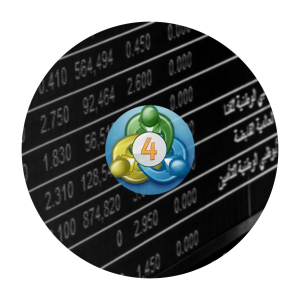 As with everyone else, Qatari traders should take their time to evaluate all of their needs before registering with a particular broker. One of the main aspects to consider is the trading platform. It is no surprise that most of the brokerages support working on MetaTrader 4 (MT4), MetaTrader 5 (MT5), and/or cTrader. It’s a no-brainer that one is always better off registering on the platform they are familiar with. The majority of Qatari-friendly brokers utilize these three platforms anyway as they are the most popular and most developed ones all around the world thus all of the top Qatari forex trading brokers utilize them. Which one you familiarize yourself with is totally up to the user. Generally speaking, while MT4 and MT5 were developed as applications to run on your computer and smartphone, the cTrader was developed as a web-platform, which means that it’s compatible with every browser out there. However, in this day and age, it really comes down to what you are comfortable with as all of these offer the same abilities to trade.
As with everyone else, Qatari traders should take their time to evaluate all of their needs before registering with a particular broker. One of the main aspects to consider is the trading platform. It is no surprise that most of the brokerages support working on MetaTrader 4 (MT4), MetaTrader 5 (MT5), and/or cTrader. It’s a no-brainer that one is always better off registering on the platform they are familiar with. The majority of Qatari-friendly brokers utilize these three platforms anyway as they are the most popular and most developed ones all around the world thus all of the top Qatari forex trading brokers utilize them. Which one you familiarize yourself with is totally up to the user. Generally speaking, while MT4 and MT5 were developed as applications to run on your computer and smartphone, the cTrader was developed as a web-platform, which means that it’s compatible with every browser out there. However, in this day and age, it really comes down to what you are comfortable with as all of these offer the same abilities to trade.
Even though MetaTrader 4 is the oldest one out of three, it was specifically developed to be traded on the foreign exchange market so it is not surprising that it’s one of the most popular ones out there in Qatar. Although, MT5 and cTrader are not slacking behind with their own features. All of these support single-click trading. Qatari traders in particular also have the option to do all of the trading from their browsers. Most of the QFCRA approved forex brokers easily offer MT4 and MT5 in parallel with the addition of downloadable versions.
Conclusion
In conclusion, when it comes to trading in Qatar, there are no locally regulated brokers in the country. However, there are several steps off-shore brokers have to take to be able to offer their services to Qatari citizens. The government is heavily reliant on people reporting their issues directly to the police when it comes to malicious companies. The idea behind the safeguard method used by Qatar is the requirements set forth by the government for the off-shore company to be able to operate in Qatar. This starts with offering native Arabic language service as well as instant transactions and money withdrawals with the addition of fund security and overall cybersecurity of the company. As such, the government and people of Qatar are heavily reliant on other regulatory bodies like ASIC, UK FCA, CySEK, and CIMA to take care of forex trading brokers for Qatari citizens as well.
Apart from this, it is absolutely necessary to read proper reviews about the brokers before committing to giving your money to them. This is caused by the overflow of scamming companies preying on gullible people who do are not as diligent to figure out if the broker is fraudulent or not. This falls under the personal responsibility of the trader though.


